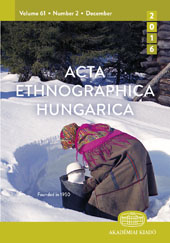MOST FREQUENT TYPES OF ALTERATION IN ANGLO-AMERICAN, GERMAN, FRENCH, RUSSIAN AND HUNGARIAN ANTI-PROVERBS
MOST FREQUENT TYPES OF ALTERATION IN ANGLO-AMERICAN, GERMAN, FRENCH, RUSSIAN AND HUNGARIAN ANTI-PROVERBS
Author(s): Anna T. Litovkina, Katalin Vargha, Péter Barta, Hrisztalina Hrisztova-GotthardtSubject(s): Customs / Folklore, Theoretical Linguistics, Comparative Linguistics
Published by: Akadémiai Kiadó
Keywords: anti-proverb; proverb; change; addition; ommision; Anglo-American; German; French; Russian; Hungarian;
Summary/Abstract: Proverbs have never been considered sacrosanct; on the contrary, they have frequently been used as satirical, ironic or humorous comments on a given situation. Wolfgang Mieder has coined the term “Antisprichwort” (anti-proverb) for such deliberate proverb innovations (also known as alterations, mutations, parodies, transformations, variations, wisecracks, fractured proverbs). The focus of this study is on different mechanisms of variation in Anglo-American, German, French, Russian and Hungarian antiproverbs. The mechanisms discussed and exemplified in the study include replacing a single word, substituting two or more words, changing the second part of the proverb, adding new words, adding literal interpretations, repeating identical or phonetically similar words, mixing two or more proverbs, word order reversal, rhyme, changing the first part of the proverb, and omission of words.
Journal: Acta Ethnographica Hungarica
- Issue Year: 52/2007
- Issue No: 1
- Page Range: 47-103
- Page Count: 57
- Language: English
- Content File-PDF

